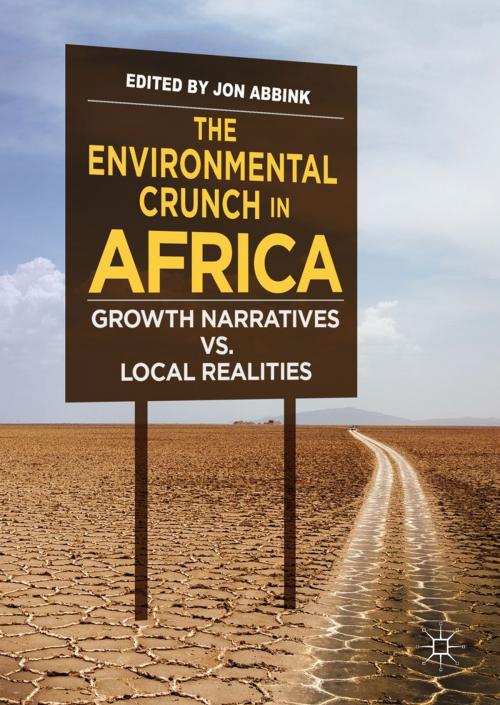The Environmental Crunch in Africa
Growth Narratives vs. Local Realities
Nonfiction, Science & Nature, Science, Earth Sciences, Geography, Social & Cultural Studies, Social Science, Sociology| Author: | ISBN: | 9783319771311 | |
| Publisher: | Springer International Publishing | Publication: | May 31, 2018 |
| Imprint: | Palgrave Macmillan | Language: | English |
| Author: | |
| ISBN: | 9783319771311 |
| Publisher: | Springer International Publishing |
| Publication: | May 31, 2018 |
| Imprint: | Palgrave Macmillan |
| Language: | English |
This book discusses the problems and challenges of environmental–ecological conditions in Africa, amidst the current craze of economic growth and ‘development’. Africa’s significant economic dynamics and growth trajectories are marked by neglect of the environment, reinforcing ecological crises. Unless environmental–ecological and population growth problems are addressed as an integral part of developmental strategies and growth models, the crises will accelerate and lead to huge costs in later years.
Chapters examine multiple emerging tension points all across the continent, including the potential benefits and harm of growing urban-based ecotourism, the trajectory of labour-saving technologies and the problems facing agro-pastoralism. Although environmental management and sustainability features of African rural societies should not be idealized, functional 'traditional' economies, interests and management practices are often bypassed, seen by state elites as inefficient and inhibiting 'growth'. In many regions the seeds are now sown for lasting environmental crises that will affect local societies that have rarely been given opportunity to claim accountability from the state regimes and donors driving these changes.
This book discusses the problems and challenges of environmental–ecological conditions in Africa, amidst the current craze of economic growth and ‘development’. Africa’s significant economic dynamics and growth trajectories are marked by neglect of the environment, reinforcing ecological crises. Unless environmental–ecological and population growth problems are addressed as an integral part of developmental strategies and growth models, the crises will accelerate and lead to huge costs in later years.
Chapters examine multiple emerging tension points all across the continent, including the potential benefits and harm of growing urban-based ecotourism, the trajectory of labour-saving technologies and the problems facing agro-pastoralism. Although environmental management and sustainability features of African rural societies should not be idealized, functional 'traditional' economies, interests and management practices are often bypassed, seen by state elites as inefficient and inhibiting 'growth'. In many regions the seeds are now sown for lasting environmental crises that will affect local societies that have rarely been given opportunity to claim accountability from the state regimes and donors driving these changes.















